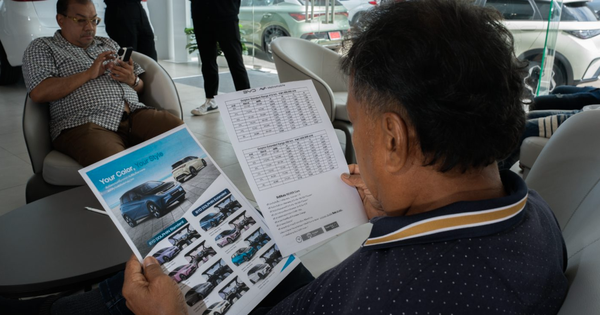The Plight of Electric Car Owners in China: Losing Value and Struggling Companies
Electric vehicle owners in China are facing a harsh reality – their vehicles are losing value rapidly, and companies are struggling to stay afloat. Mandy Pan, who recently bought a silver plug-in hybrid from BYD, a leading Chinese electric vehicle manufacturer, believed she made a wise choice. The Qin Plus model seemed affordable and energy-efficient, prompting Pan to take out a 5-year loan to own the vehicle, which was worth 94,800 yuan ($13,168). However, within just four months, as electric vehicle manufacturers in China battled a fierce price war, the Qin Plus unexpectedly dropped in price by 15,000 yuan. Pan was shocked. She felt like she had been deceived and believed that some form of compensation should be provided. “I truly regret buying this car,” Pan exclaimed.
The largest electric vehicle market in the world, China’s electric vehicle industry, which experienced rapid growth for years with government support, is now facing a downturn as consumers tighten their spending post-pandemic. To address this issue, manufacturers have resorted to lowering prices to maintain sales volume. However, this has left some car owners feeling frustrated as their newly purchased vehicles quickly depreciate in value. Additionally, the financial crisis faced by some electric vehicle companies has left thousands of buyers unable to access after-sales services and maintenance.
Startups like HiPhi and WM Motor, backed by Baidu and Tencent respectively, have already run out of funds to sustain their operations. Other brands like Levdeo and Singulato Motors are reluctantly going through bankruptcy procedures. Experts believe that the Chinese electric vehicle industry is transitioning from uncontrolled growth to consolidation. The annual sales forecast for new energy vehicles, including electric and plug-in hybrid cars, is predicted to increase by 22% by 2024, a slower pace compared to previous years.
Automobile manufacturers are actively slashing prices to stay competitive. BYD, the best-selling brand in China with an estimated sales volume of 2.4 million units by 2023, has also reduced prices across most of its vehicle models since February. A plug-in hybrid version priced at 79,800 yuan ($11,112) was introduced with the slogan “Cheaper Battery Than Engine.”
“The overall sentiment in the Chinese economy is unfavorable. There are still too many brands and too many products,” said Tú Lê, founder of Sino Auto Insights, in an interview with Rest of World.
This extreme price reduction policy has left electric vehicle owners disappointed, especially those who recently purchased vehicles. In February, the automobile quality monitoring platform, 12365auto.com, received 6,884 complaints about price changes, mostly targeting domestic electric vehicle brands. On the Xiaohongshu social media platform, BYD owners have even formed groups to discuss ways to seek compensation, such as contacting dealerships or consumer rights protection agencies, feeling that they have been deceived.
Ming Yang, an auto owner from Anhui Province, expressed frustration after buying a BYD Seal sedan in late 2022 for 240,000 yuan ($33,337) to take advantage of government subsidies. By February, the same model had dropped by approximately 40,000 yuan ($5,556). “Ordinary people like me worked hard for months to earn this money,” Yang shared her disappointment.
According to Zhang Xiang, a professor at Huanghe Science and Technology University, the price war has gradually eliminated smaller companies from China’s crowded electric vehicle industry. Consulting firm AlixPartners believes that only 25 to 30 out of over 160 brands will have the ability to maintain stable finances by 2030.
“In the Chinese market, most electric vehicle manufacturers are losing money due to intense competition. The high cost of lithium is considered the main reason for poor business performance. However, even when the price of this material does not rise, these companies’ profits remain negative,” said Gong, an industry analyst.
HiPhi is among the unlucky companies. Since launching its first model in 2020, the company has failed to increase sales, and its parent company, Human Horizons, had to suspend operations in February. Founder Ding Lei plans to spend the next three months exploring investment options and takeover plans.
Meow Li, who purchased a HiPhi Y for 369,000 yuan ($51,263) in 2023, expressed deep concern. If the company goes bankrupt, her car will not be repairable in the event of an accident. “Buying from electric vehicle startups is like making a risky investment,” said Sun Fangyuan, an influential figure in the automotive industry.
HiPhi is so short of funds that its employees have resorted to selling frozen food during live streaming sessions to earn extra income. In a recent live stream on Douyin, a popular Chinese app, HiPhi project director Yang Yueqing even cooked steak on an electric stove powered by the HiPhi Y SUV to indirectly promote the product.
“The Chinese electric vehicle market has high standards. A company must raise sufficient capital, develop strong products, and have a good sales team to survive,” explained David Zhang, a professor at Huanghe Polytechnic College in Hubei Province.
References: Rest of World, SCMP

